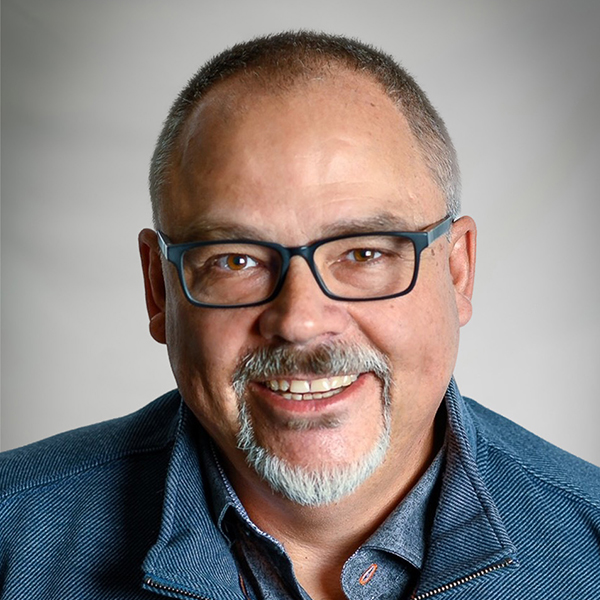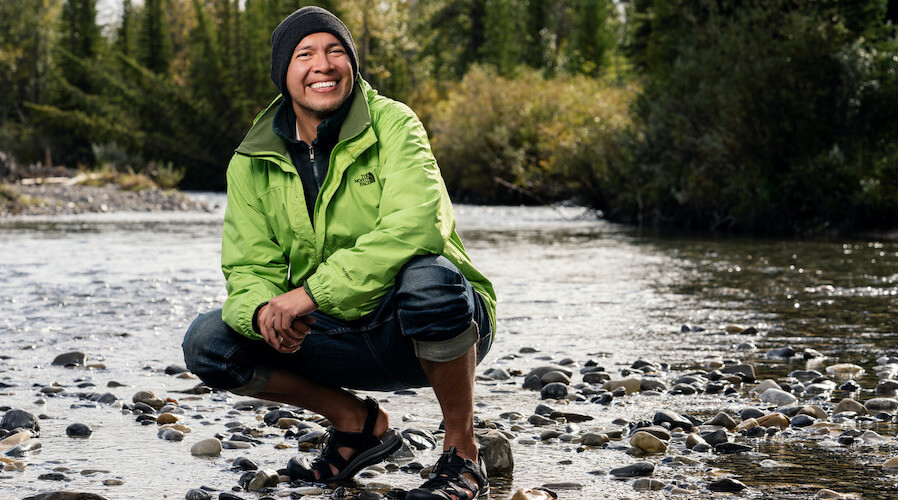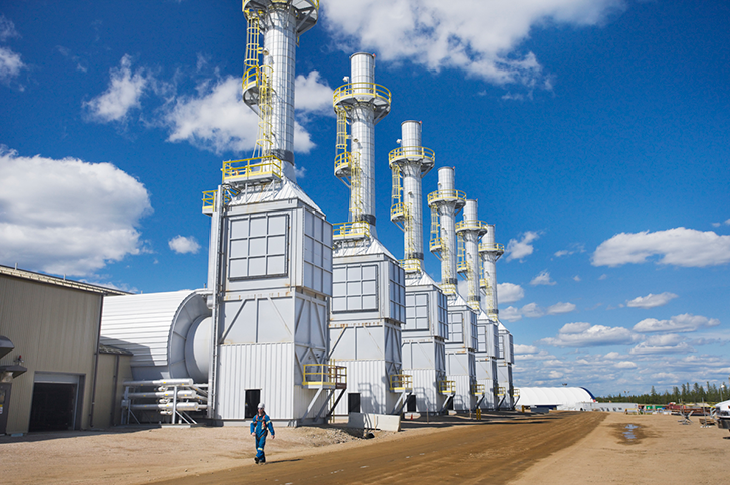Few know the ins and outs of Alberta’s energy industry like Keith MacPhail (PT ‘81).
When SAIT’s Energy department was renamed for MacPhail in 2005, it became Canada’s first school of energy and the only academic school named after a SAIT graduate.
Today, the MacPhail School of Energy is embracing the integration of all viable forms of energy in smart, responsible ways.
One of the most important challenges of the 21st century is to accelerate the transition toward a low-carbon economy while continuing to provide vital energy resources to support economic growth.
Energy demand is expected to increase by as much as 50% over the next 30 years. This means we need to build on the significant innovations happening in the fossil fuels industries to reduce their environmental footprint and innovate to accelerate the viability and adoption of renewable energy sources.
Since the dawn of the industrial revolution, growth in economic prosperity has been closely correlated with a growing demand for energy. But the effects of CO2 emissions on the environment are undeniable.
Dale Hansen
Dean of MacPhail School of Energy

Keith MacPhail has seen remarkable changes in technology usage and emissions reductions in the energy sector.
This is causing a shift in in-demand skills, and he sees SAIT as the ideal conduit for training students for future-focused energy careers.
Adaptability, flexibility and digital technology are the future-proof skills we help our students develop — these are also skills needed to fuel further innovation as the oil and gas industry embraces technology to create more environmentally friendly solutions.
Together, we can reshape how we source, distribute and manage resources to create sustainable value for our communities, our province, for Canada and the world.
Join us in tackling the most critical work of our time: empowering future-ready energy.
Focus on sustainability
Water sustainability is essential to our future, and SAIT recognizes the importance of sustainable water management.
Our newest diploma in Integrated Water Management trains students to tackle local and global water issues through responsible water stewardship.
As part of its ongoing support at SAIT, Imperial invested $1 million towards program development and implementation, furthering its steadfast commitment to environmental stewardship.
Water is life, it touches our economic prosperity, it generates energy for industry, it attracts us with its beauty and it's vital to sustaining life.
Pablo Pina
Academic Chair for Sustainability

Focus on environment
Governments and industry now include sustainable social and environmental expectations as a key component of their plans and activities.
Industries and organizations are now seeking talent with environmental and sustainability qualifications.
Our Environmental Technology diploma trains students to safeguard and champion our natural environment to support industry needs and address the demand for environmental sustainability.

In-situ steam research contributes energy and environmental solutions in oilsands operations
$2-million NSERC collaborative research and development (CRD) project tackles fouling and erosion/corrosion in once-through steam generators (OTSG).
Collaboration is key in finding environmental solutions to one of the oilsands industry’s most common operational problems.
SAIT and Alberta’s leading universities are undertaking a research partnership to develop scientific and innovative clean-technology solutions, test ideas in the lab, and potentially contribute to novel, practical and sustainable ways of resolving relevant technical and environmental issues.
Contact us
MacPhail School of Energy
KA440, Johnson-Cobbe Energy Centre, SAIT Main Campus
-
Phone - 403.284.8451
-
Phone - 403.284.8262 (fax)

Oki, Âba wathtech, Danit'ada, Tawnshi, Hello.
SAIT is located on the traditional territories of the Niitsitapi (Blackfoot) and the people of Treaty 7 which includes the Siksika, the Piikani, the Kainai, the Tsuut’ina and the Îyârhe Nakoda of Bearspaw, Chiniki and Goodstoney.
We are situated in an area the Blackfoot tribes traditionally called Moh’kinsstis, where the Bow River meets the Elbow River. We now call it the city of Calgary, which is also home to the Métis Nation of Alberta.
